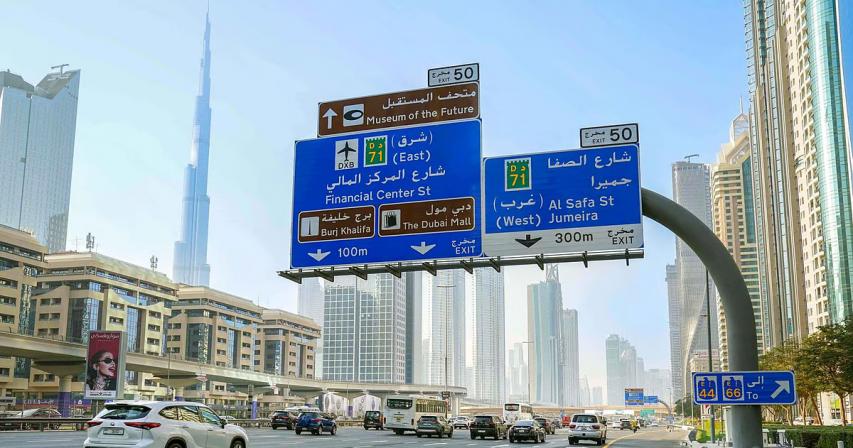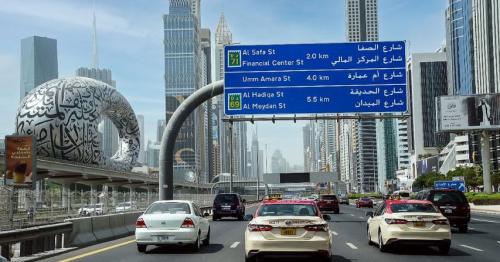UAE: Driverless cars could cut traffic delays by 60%

The United Arab Emirates advances smart mobility solutions worldwide through its comprehensive autonomous vehicle technology trials which receive backing from both governmental and private entities.
An international think tank's report projects that current initiatives will lead to a 60 per cent reduction in traffic congestion.
The nation is developing a balanced mobility ecosystem that combines operational efficiency with sustainable goals through successful pilot programmes and dedicated innovation according to Arthur D. Little in its latest Autonomous Mobility Journal edition which showcases UAE's progress in autonomous transport.
Samir Imran, partner for Travel, Transportation, and Hospitality for Arthur D. Little Middle East, also emphasised: The UAE demonstrates how countries can actualize autonomous mobility systems.
Key testing hubs
The report identifies Dubai and Abu Dhabi as essential locations for testing autonomous vehicles.
The Roads and Transport Authority (RTA) of Dubai worked with Cruise to conduct effective robo-taxi pilot tests which proved autonomous technology integration in busy city settings works well according to the report.
Abu Dhabi has focused on pioneering public transportation through WeRide’s robo-buses which address last-mile connectivity issues while reducing urban congestion.
Autonomous transport systems in the UAE will bring significant economic advantages and environmental improvements beyond simply enhancing mobility. Studies show a 60 percent reduction in congestion-related delays can be achieved through these solutions.
The UAE’s targets to enhance urban operational efficiency and decrease carbon emissions are fully matched by these improvements. The UAE's regulatory sandboxes form the core foundation of these technological progressions. The approach described creates cooperative spaces for government organizations and private-sector innovators to test new technologies.
Baidu's robo-taxi operations in China achieved over 800,000 rides during Q4 2023 with 45 per cent operating fully driverless while Waymo conducted driverless rides in the US.
How going driverless can reduce traffic
Urban transportation networks need seamless integration of autonomous vehicles such as robo-buses for effective reduction of road congestion. The report states that successful implementation requires deploying these vehicles strategically within current infrastructure systems.
The report indicated that autonomous buses will boost public transit efficiency and safety while solving the industry's driver shortage problem.
Robo-buses function at Level 4 autonomy which allows them to perform most driving operations independently within specified environments without human intervention.
The report emphasized that robo-buses would enhance operational productivity without human driver time restrictions since their operation would not be bound by typical human shift schedules.
Robo-buses offer passengers improved road safety because human behavior causes 94 per cent of crashes. Analysts predict that robo buses will create less traffic congestion because they can reduce vehicle headways and cut congestion-related delays by 60 per cent on highways.
A shift in how transportation is done
The report outlined various integration challenges for autonomous vehicles into public transportation systems such as maintaining safety standards and connectivity between vehicles while enhancing sensor technology and optimizing consumer acceptance alongside improved routes and service operations.
Hassan Khairat from Arthur D. Little Middle East Travel, Transportation, and Hospitality Practice observed that regional efforts draw knowledge from international markets including autonomous vehicle testing zones in Beijing and Baidu's robocar operations in China.
Autonomous mobility extends beyond technological progress to transform our fundamental approach to transportation systems. The region demonstrates foresight in its initiatives which establishes the Middle East as a leader in the worldwide smart cities movement according to his explanation.
The Middle East stands at the forefront of the autonomous mobility sector because regional governments and private enterprises remain committed to promoting innovation.
The Middle East demonstrates leadership in smart mobility evolution through technology embracement and sustainable urban planning while also establishing followable standards through collaboration.






Comments